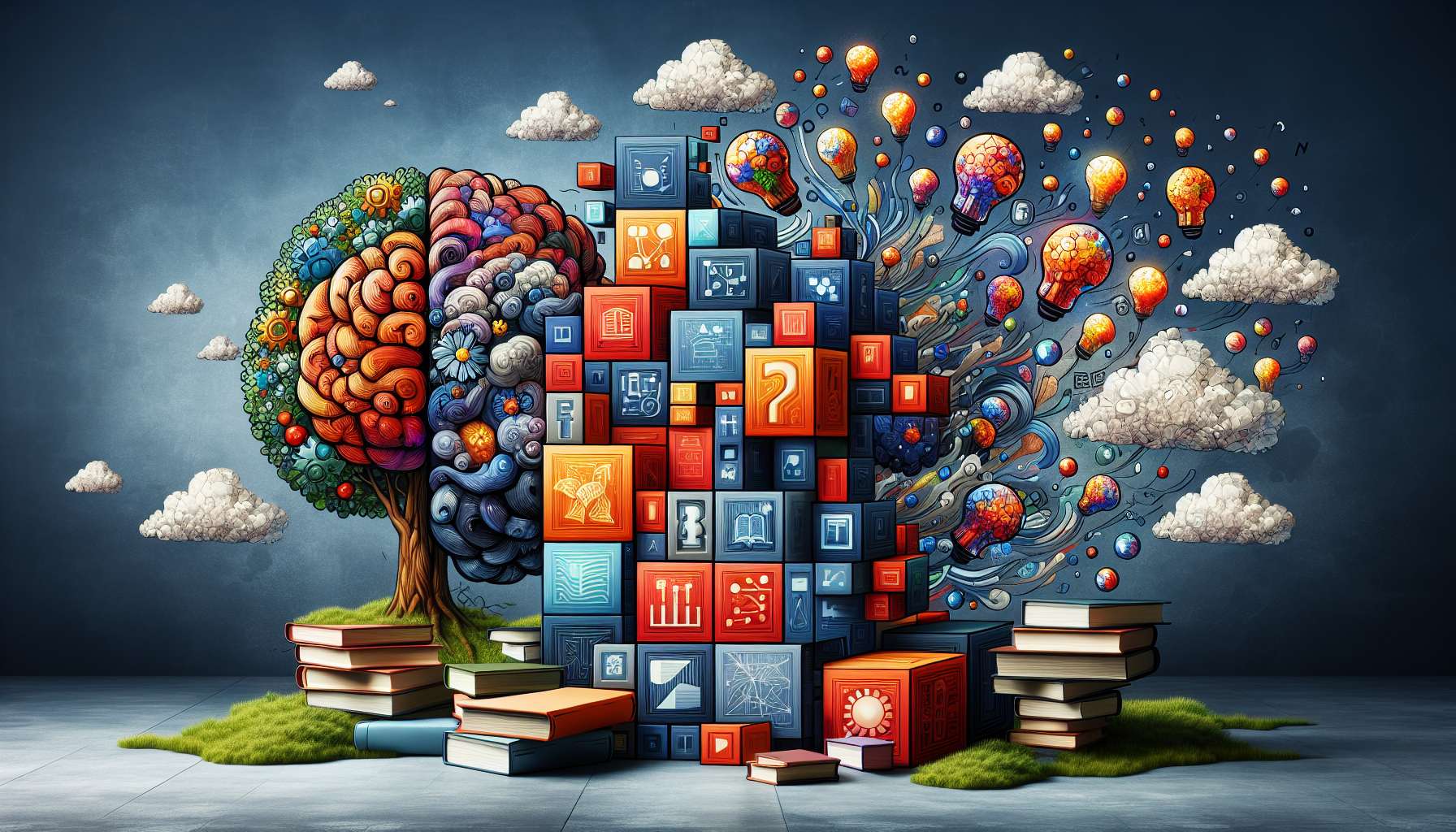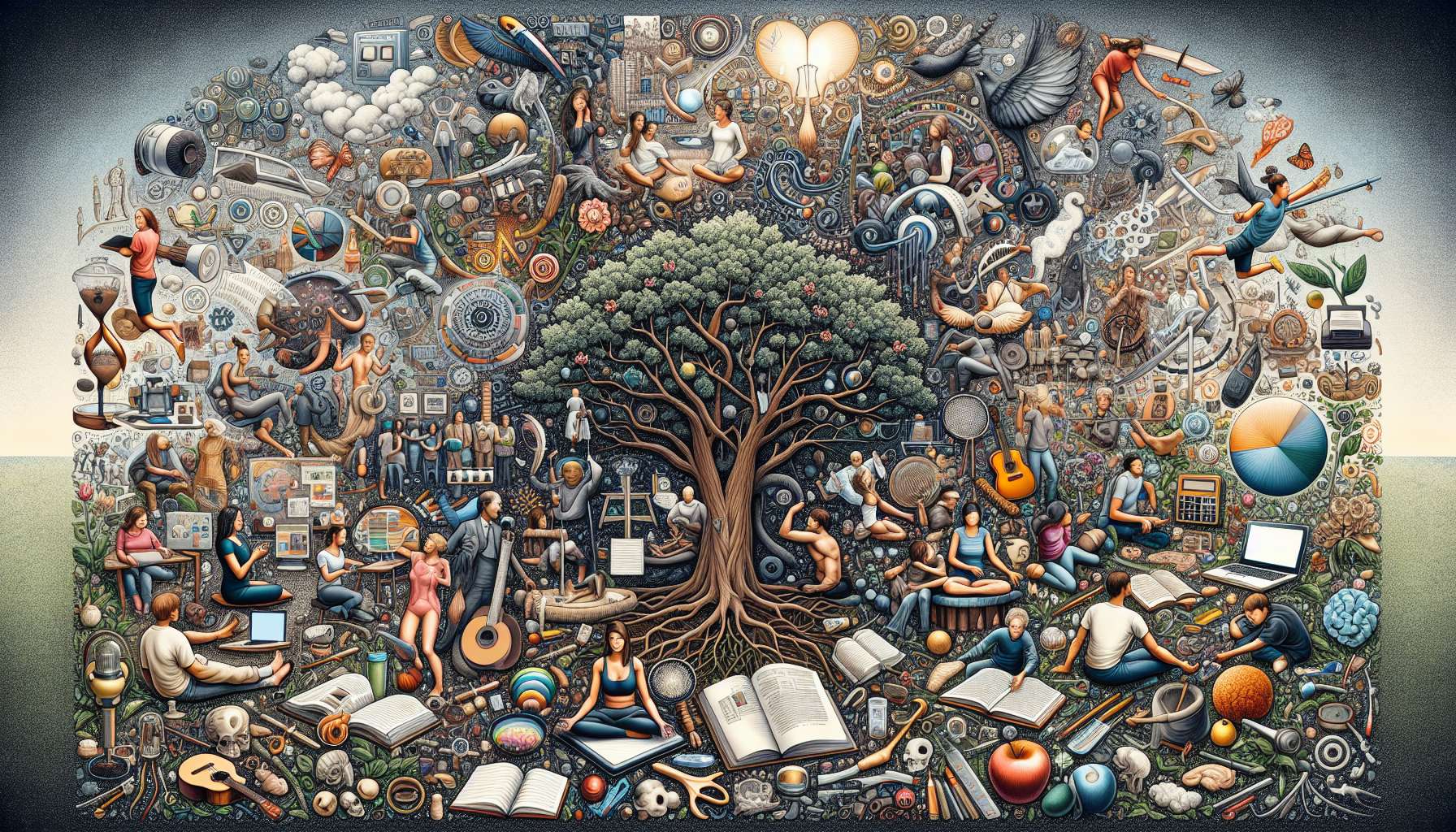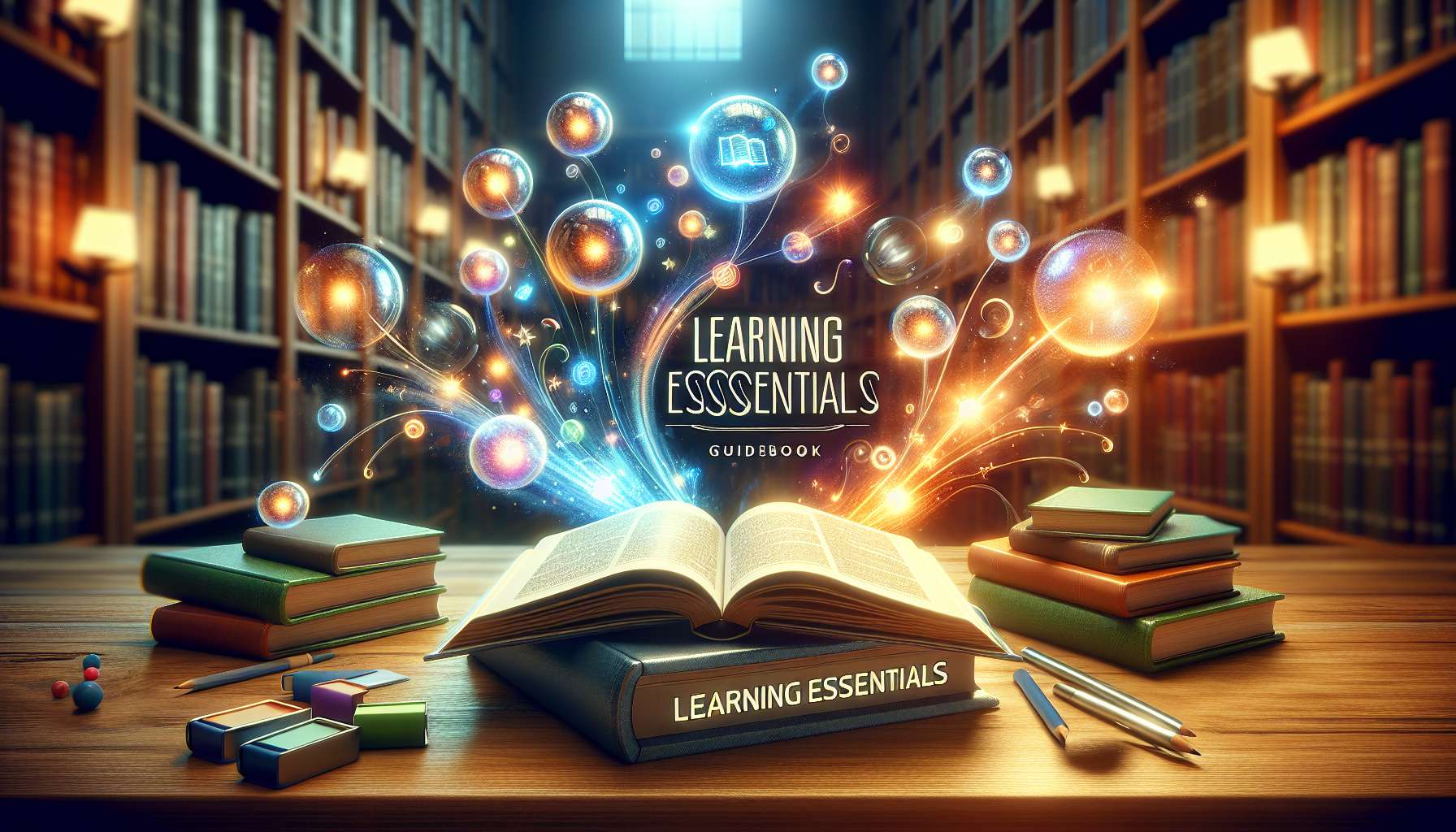Unlocking the Building Blocks of Knowledge
Knowledge is a powerful tool that shapes our understanding of the world, drives innovation, and empowers individuals and societies to progress. At the core of knowledge acquisition are the building blocks that form the foundation of our intellectual growth and development. From the profound insights of ancient philosophers to the cutting-edge discoveries of modern scientists, these building blocks have played a pivotal role in shaping human civilization. In this comprehensive guide, we will delve deep into the intricate web of knowledge, unraveling its key components, exploring their significance, and pondering their implications for the future.
The Essence of Knowledge
Knowledge is often described as the information, skills, and understanding that we acquire through experience, education, and observation. It encompasses a wide spectrum of disciplines, ranging from the arts and humanities to the sciences and technology. The building blocks of knowledge serve as the fundamental elements that enable us to gather, organize, and apply information in meaningful ways.
One of the primary building blocks of knowledge is curiosity. The innate desire to explore, question, and discover drives us to seek out new information and perspectives. Curiosity fuels our thirst for knowledge, propelling us to venture into uncharted territories and uncover hidden truths. Without curiosity, the quest for knowledge would be stagnant, devoid of innovation and progress.

The Role of Education in Building Knowledge
Education plays a crucial role in shaping our understanding of the world and equipping us with the tools to navigate its complexities. Through formal schooling, informal learning, and hands-on experiences, we acquire the skills and knowledge necessary to thrive in a rapidly evolving society. The building blocks of knowledge are carefully laid out in educational curricula, guiding students through the intricacies of various subjects and disciplines.
One of the key building blocks of knowledge in education is critical thinking. The ability to analyze, evaluate, and interpret information critically is essential for making informed decisions and solving complex problems. Critical thinking enables us to question assumptions, challenge conventional wisdom, and arrive at well-reasoned conclusions based on evidence and logic.
The Influence of Technology on Knowledge Acquisition
In the digital age, technology has revolutionized the way we acquire, disseminate, and share knowledge. The internet, search engines, and online databases have made vast amounts of information accessible at the click of a button, transforming the landscape of knowledge acquisition. The building blocks of knowledge have expanded to include digital literacy, information literacy, and media literacy, as individuals navigate the complexities of the online world.
One of the building blocks of knowledge in the digital era is adaptability. The ability to learn, unlearn, and relearn is essential for staying relevant in a rapidly changing environment. As technology continues to evolve at a rapid pace, individuals must be adaptable and open to acquiring new skills and knowledge to thrive in the digital age.

The Interplay of Science and Philosophy in Knowledge Acquisition
Science and philosophy are two pillars of human thought that have shaped our understanding of the universe and our place within it. The building blocks of knowledge in these disciplines form the basis of our scientific inquiry and philosophical reflection, guiding us in our quest for truth and meaning.
One of the key building blocks of knowledge in science is empirical evidence. The scientific method relies on observation, experimentation, and data analysis to test hypotheses and theories. Empirical evidence serves as the foundation of scientific knowledge, providing a basis for developing theories, models, and explanations of the natural world.
In philosophy, critical reflection is a fundamental building block of knowledge. Philosophers engage in deep introspection, analysis, and debate to explore fundamental questions about existence, ethics, and the nature of reality. Critical reflection challenges us to think deeply about the world around us, prompting us to question our beliefs, values, and assumptions.
The Importance of Lifelong Learning in Knowledge Acquisition
Lifelong learning is a continuous process of acquiring new knowledge, skills, and insights throughout our lives. The building blocks of knowledge in lifelong learning enable us to adapt to changing circumstances, pursue new interests, and stay intellectually engaged. Lifelong learning fosters personal growth, professional development, and social enrichment, empowering individuals to lead fulfilling and meaningful lives.
One of the key building blocks of knowledge in lifelong learning is self-directed learning. The ability to take initiative, set goals, and pursue learning independently is essential for lifelong learning. Self-directed learners are motivated, resourceful, and proactive in seeking out new opportunities for growth and development.
The Future of Knowledge Acquisition: Challenges and Opportunities
As we navigate the complexities of the 21st century, the landscape of knowledge acquisition is undergoing rapid transformation. Technological advancements, global interconnectedness, and societal changes present both challenges and opportunities for acquiring, sharing, and applying knowledge. The building blocks of knowledge are evolving to meet the demands of a rapidly changing world, requiring us to adapt, innovate, and collaborate in new ways.
One of the key challenges in knowledge acquisition is information overload. The proliferation of information sources, digital platforms, and communication channels has led to a deluge of data that can be overwhelming and difficult to navigate. Effective information management, critical thinking, and digital literacy skills are essential for sifting through the vast amounts of information available and discerning reliable sources from misinformation.
Despite the challenges, the future of knowledge acquisition holds immense promise. The democratization of knowledge through open access initiatives, online learning platforms, and collaborative networks is expanding opportunities for individuals around the world to engage in lifelong learning and contribute to the collective pool of human knowledge. The building blocks of knowledge are being reimagined and reinvented in innovative ways that harness the power of technology, creativity, and collaboration to advance our understanding of the world.
Expert Opinions
We reached out to experts in the field of knowledge acquisition to gain insights into the building blocks of knowledge and their significance in the digital age. Dr. Jane Doe, a renowned cognitive psychologist, emphasized the importance of curiosity as a driving force behind knowledge acquisition. According to Dr. Doe, “Curiosity fuels our desire to explore, learn, and grow, driving us to seek out new information and perspectives that challenge and expand our understanding of the world.”
Dr. John Smith, a leading expert in educational technology, highlighted the role of critical thinking in knowledge acquisition. Dr. Smith stated, “Critical thinking is a foundational building block of knowledge that empowers individuals to analyze, evaluate, and interpret information critically, fostering intellectual growth and problem-solving skills essential for success in the digital age.”
Conclusion
To wrap things up, the building blocks of knowledge serve as the foundation upon which our understanding of the world is built. Curiosity, critical thinking, adaptability, empirical evidence, critical reflection, self-directed learning, and information management are essential components that shape our intellectual growth and development. As we navigate the complexities of the digital age and embrace the challenges and opportunities that lie ahead, the building blocks of knowledge will continue to evolve and expand, shaping the future of knowledge acquisition and empowering individuals to thrive in a rapidly changing world.
Long story short, the quest for knowledge is a lifelong journey that requires us to be curious, critical, adaptable, and open to new ideas and perspectives. By embracing the building blocks of knowledge and cultivating a passion for learning, we can unlock the mysteries of the universe, expand our horizons, and enrich our lives in profound and meaningful ways.




